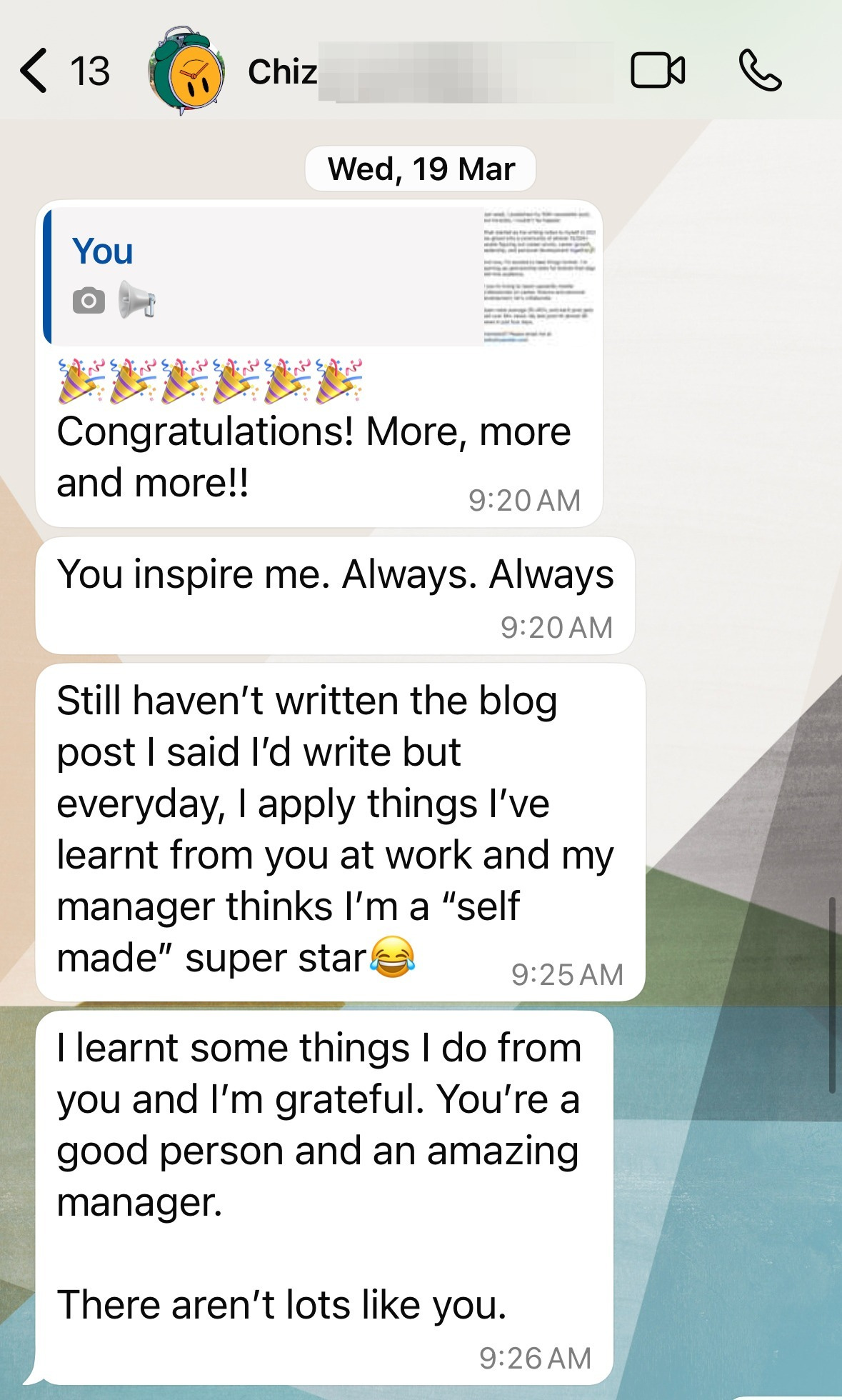👋🏾 Hey, it’s Wamide. Welcome to another issue of OnGrowth&, a bi-monthly newsletter on career growth, leadership, and personal development.
A month ago, I shared a post about finding your strengths, turns out it resonated with over 6000 people and a good number of you shared it (thank you!)
But strengths are just one piece of the puzzle. A complete SWOT analysis also means identifying weaknesses, spotting opportunities, and acknowledging threats in the way of your growth journey.
So today, let’s talk about weaknesses.
We’ve all been in interviews where we’re asked, “Tell me about your strengths and weaknesses.” And because we want to sound polished, the typical advice tells us to say something like:
"I’m a perfectionist, but I’m learning not to let it get in the way of my work.”
Everyone has something they can work on.
But here’s a better way to think about weaknesses: Instead of seeing them as flaws, think of them as improvement areas - opportunities to grow and refine yourself.
And don’t limit this to just your career. If you’re blunt, overly direct, or confrontational in your personal life, that’s a weakness too.
The tricky part? We often have blind spots - weaknesses we don’t even realize we have (The Johari Window Model is a great model for self-awareness). That’s why feedback is one of the most valuable tools for growth.
Now, I’m not talking about toxic, mean-spirited criticism. I mean real, constructive feedback- the kind that helps you improve.
Learning Through Feedback
Here’s how I think about feedback.
I was 26 when I first became a people manager - leading a team of three, including a man in his 40s. You can imagine the clashes we had, although we found resolutions eventually.
When I decided to leave the company, I asked everyone I worked with for feedback. His feedback stood out - he said I micromanaged and didn’t have full trust in the team’s work. To be honest, I have since realized that men and women just like to be managed differently (but that’s a whole different newsletter coming soon).
As someone who likes to do work a certain way, he was somewhat right. I knew I wanted to be a better manager, so I made some adjustments.
Here’s a recent feedback from someone who I once managed (she worked with me for about 2 years before she moved on to another company this year).
Weaknesses aren’t just things to “fix.” They’re signals - areas to intentionally develop.
How to Identify Your Weaknesses
Take an honest audit of your weaknesses. Ask yourself:
What habits hold you back from doing your best work? Think back to feedback you've received from friends, colleagues, managers, mentors, family - note the areas of concern that have come up repeatedly.
Are these more related to technical skills (hard skills) or interpersonal skills (soft skills)?
Do you have all the skills, certifications, or qualifications needed for your current or desired future roles? What gaps do you notice in your training, education or skills?
What tasks or responsibilities do you often procrastinate on or avoid due to fear or lack of confidence? Note the areas you don’t enjoy (these should be delegated).
What’s one weakness (hard skill or soft skill) you could turn into a strength by committing to learning, mentorship or practicing more?
And if you’re not sure - ask someone. I’ll dive deeper into opportunities and threats in my next issue, so stay tuned!
“Ignorance acknowledged is an opportunity. Ignorance denied is a closed door.” - Chimamanda Ngozi Adichie.
You are more than your weaknesses!
🛎️ Call To Action
If you want to go deeper, I created a Personal SWOT Analysis Template to help you map all of this in one place, including 5 more questions and bonus prompts to help you spot patterns and take action. Get the template here.
No matter where you are - stuck, pivoting, or building - this tool can help you find clarity and direction. I used it myself in Q1, and it gave me so much clarity on my creator journey.
Bonus: I’ll randomly pick one buyer to gift a free career clarity session.





I look forward to the post about managing men and women differently. Thanks for sharing Wamide. I recently had to take stock of my Leadership style thanks to my coach. I have learnt alot about my weaknesses too.
Seeing your weakness as an area of improvement is key.